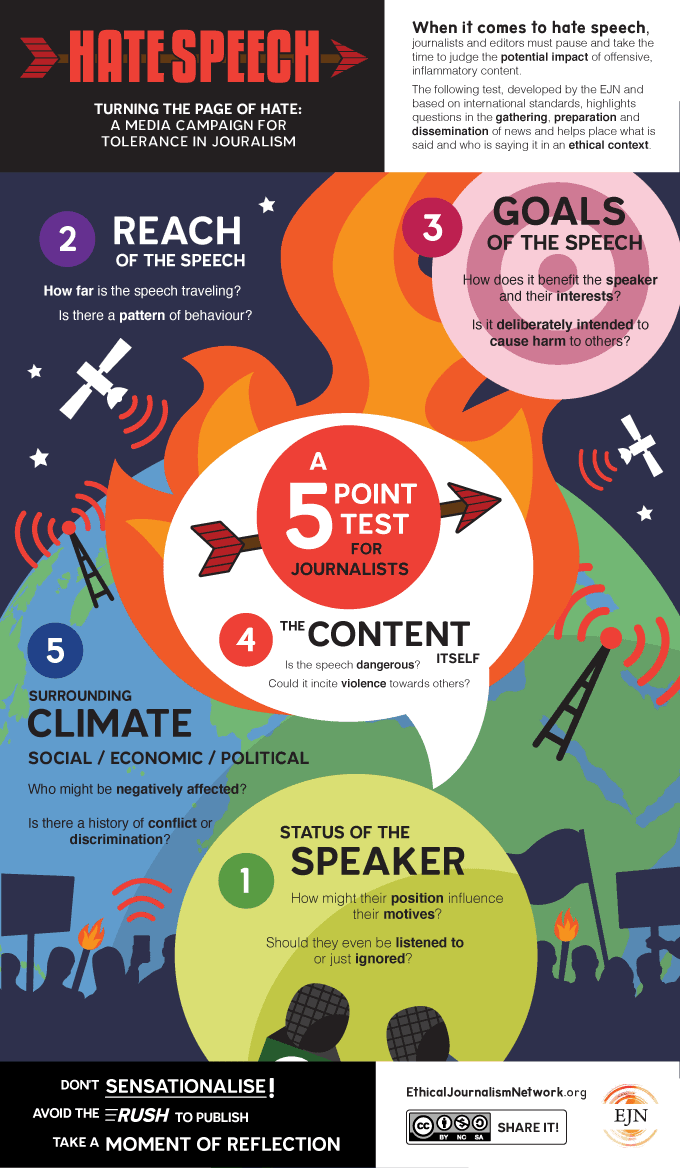Solidarity and Self-regulation Vital for Independent Journalism in Europe
Tom Law
Solidarity in defence of ethics and self-regulation is the key to building public trust in media Europe’s leading media human rights campaigner has told journalists’ leaders ahead of World Press Freedom Day on Tuesday 3 May.
Dunja Mijatović, the Organisation for Security and Co-operation in Europe representative for media freedom, said that self-regulation was the only way media can address issues of accountability, transparency and ensuring press freedom.
She urged more than 100 European journalists’ leaders meeting in Sarajevo last week to work together for self-regulation in media to ensure accountability and transparency for their audience.
“It is a very long and, I would say, painful project”, she told delegates at the annual meeting of the European Federation of Journalists, representing associations and unions of journalists, but added that it is the only way media can protect their independence. “What is needed is more solidarity and more determination to address these issues.”
The meeting highlighted the need for a focus on self-regulation in Western Balkans. “What I see across the region is polarisation of many associations having different views on these issues,” she said. “But my firm view when it comes to journalism is they should all have the same view.”
She pointed to the successful collaboration between the delegates from Ukraine and Russia who are promoting the idea of “one profession; two countries” as an example of the need for a common commitment to journalism, especially in conflict situations.
On Tuesday, to mark World Press Freedom Day, UNESCO is officially launching a project to strengthen self-regulation in Western Balkans with the Ethical Journalism Network and other partners.
Over the next three years, the EJN will be working with press councils, journalists and media support groups to find ways to improve governance and ethical codes at a national level and within key media organisations in the region.
This work has already begun in Kosovo and will go on to cover Albania, Serbia, Bosnia, Macedonia, Montenegro and Turkey.
Mijatović praised the Ethical Journalism Network for its track record of successfully collaborating with her office to improve press freedom in the Western Balkans.
“I am really glad that the EJN exists and works with journalists”, she said, adding that it was important for the European unions and associations to talk open dialogue and explore ways of working EJN as it is a position to engage with issues in ways that inter-governmental organizations like the OSCE cannot.
“I do not believe that issues relating to the professional conduct of journalists is something that governments need to engage in, especially in countries where there is not a tradition of an independent judiciary.”
There is need for more international engagement on media monopolies and transparency of ownership across Europe, including within the European Union, she said.
In most cases it is not a lack of laws enshrining freedom of expression and free press but “zero implementation” of these laws.
 Mijatović said the EJN and other organisations had created tools, like the five point test for hate-speech, to help media analyse content and create and implement codes of ethics.
Mijatović said the EJN and other organisations had created tools, like the five point test for hate-speech, to help media analyse content and create and implement codes of ethics.
The President of the EFJ, Mogens Blicher Bjerregård, who is speaking at a World Press Freedom Day panel chaired by the EJN at the UNESCO meeting in Helsinki on Tuesday, told the meeting in Sarajevo that journalism unions and associations in Europe “must insist that they as well as European media should follow ground rules, which means respecting authors’ rights including ensuring remuneration, social dialogue and ethical code of conducts.”
He said: “Self-regulation is in my view the only way to ensure press freedom as the only alternative is state regulation leading to censorship. This is unfortunately the case in too many European countries, where safety of journalists and fighting impunity are among the most important topics.”
Mijatović also used her speech to highlight the role of the state and security services in ensuring a free press and freedom of expression. “Any rational discussion about the state of media freedom must begin with an analysis of the state of the safety of journalists,” she said. “It is unacceptable that journalists every day are being attacked, threatened and intimidated for what they say or write.”
She pointed to the growing number of online threats against journalists and expressed particular concern about how female journalists are being singled out and targeted.
“These online attacks tend not to address the content of the articles but instead degrade the journalists as women,” she said. “For some female journalists, online threats of rape and sexual violence have become part of everyday life; others experience severe sexual harassment and intimidation. Misogynist speech is flourishing.”
The EFJ meeting also backed the Journalists Association of Bosnia and Herzegovina (BiH) call for higher professional standards within Bosnian media through greater solidarity.
Photo credit: Urs Thalmann
Self-regulation and accountability
Read more about collaboration between Russian and Ukrainian journalists in this blog by the general secretary of the European Federation of Journalists, Ricardo Gutiérrez: Journalists at war, from Crimean War to Ukraine Crisis.